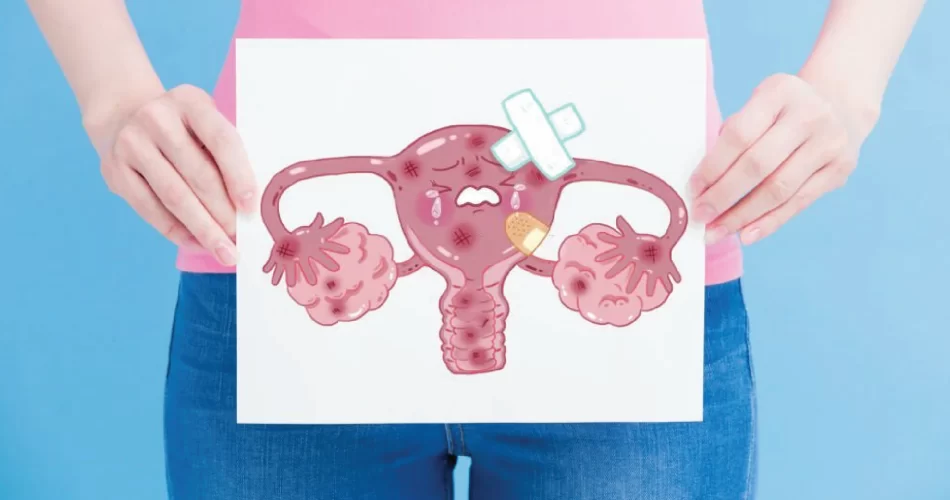Last Updated on 20 February 2024 by Vanessa Thoko
Vaginal discharge is a normal part of pregnancy, and many women notice an increase in discharge during the first trimester.
This is due to increased hormone levels, which can cause the cervix to produce more mucus.
In the first week of pregnancy, it is less common to experience a noticeable increase in discharge.
However, some women may notice a slight increase in clear or white discharge, which is normal.
In this guide, we’ll talk about a topic that’s important for women during the first week of pregnancy – discharge.
Understanding what’s normal can ease your worries and help you navigate this exciting time.
Key Facts
- Vaginal discharge in the first week of pregnancy is normal due to increased hormone levels.
- It’s usually clear or white, without a strong odor.
- Understanding what’s typical helps ease concerns during this exciting time.
- Causes include hormonal changes, implantation bleeding, and cervical mucus alterations.
- Managing discharge: wear loose cotton underwear, avoid scented products, maintain hygiene.
- Seek medical attention if you experience unusual discharge types, itching, pain, or other concerning symptom
What Is 1-Week Pregnancy Discharge?

Okay, so you’ve just found out you’re pregnant. Congrats! Now, let’s talk about what’s going on down there.
In the first week of pregnancy, you might notice changes in your vaginal discharge.
This discharge is often clear or milky and doesn’t have a strong odor. It’s a result of hormonal shifts and can be perfectly normal.
However, it’s essential to differentiate between normal discharge and anything unusual.
Causes Of 1-Week Pregnancy Discharge

- Hormonal Changes: During pregnancy, your body goes through significant hormonal changes, which can lead to increased vaginal discharge. This is a way your body adapts to support your growing baby.
- Implantation Bleeding: Sometimes, you may notice a little bit of spotting, which could be implantation bleeding. It occurs when the fertilized egg attaches to the uterine lining. It’s usually light and doesn’t last long.
- Cervical Mucus Changes: Your cervix produces mucus that creates a protective barrier during pregnancy. These changes can result in different types of discharge, from thicker and sticky to thin and watery.
How To Manage 1-Week Pregnancy Discharge

There are a few things you can do to manage 1-week pregnancy discharge:
- Wear loose-fitting, cotton underwear. This will help to keep the area dry and comfortable.
- Avoid using scented soaps and douches. These products can irritate the vagina and make the discharge worse.
- Change your underwear and panty liners frequently. This will help to prevent the buildup of bacteria and yeast.
- Wipe yourself from front to back after using the toilet. This will help to prevent the spread of bacteria from the anus to the vagina.
- Avoid using tampons during pregnancy. Tampons can absorb the protective mucus that is produced by the cervix, which can increase the risk of infection.
If you are experiencing a lot of discharge, you may want to wear panty liners to absorb it.
You can also try using a vaginal suppository or cream to help reduce the discharge.
However, it is important to talk to your doctor before using any over-the-counter products during pregnancy.
When To Seek Medical Attention

You should seek medical attention if you experience any of the following types of vaginal discharge during pregnancy:
- Bloody or brown discharge: This could be a sign of miscarriage, ectopic pregnancy, or placental abruption.
- Yellow or green discharge: This could be a sign of a vaginal infection, such as a yeast infection or bacterial vaginosis.
- Thick, white discharge with cottage cheese-like appearance: This is a sign of a yeast infection.
- Discharge that is accompanied by itching, burning, or pain: This could be a sign of a vaginal infection or an STI.
- A sudden increase in the amount of discharge: This could be a sign of preterm labor.
You should also see a doctor if you notice any other unusual symptoms, such as fever, chills, or lower abdominal pain.
Conclusion
In the first week of pregnancy, it’s entirely normal to experience changes in vaginal discharge.
But remember, if anything feels unusual or uncomfortable, don’t hesitate to consult your healthcare provider.
Your well-being and the health of your baby are top priorities.
Embrace this beautiful journey, and don’t hesitate to seek support and advice from professionals here in South Africa.
Congratulations on this exciting new chapter in your life!










